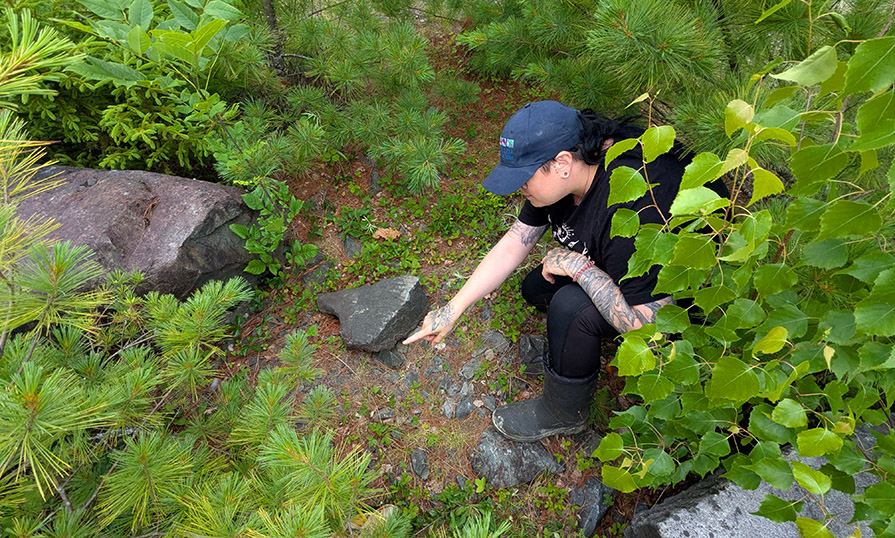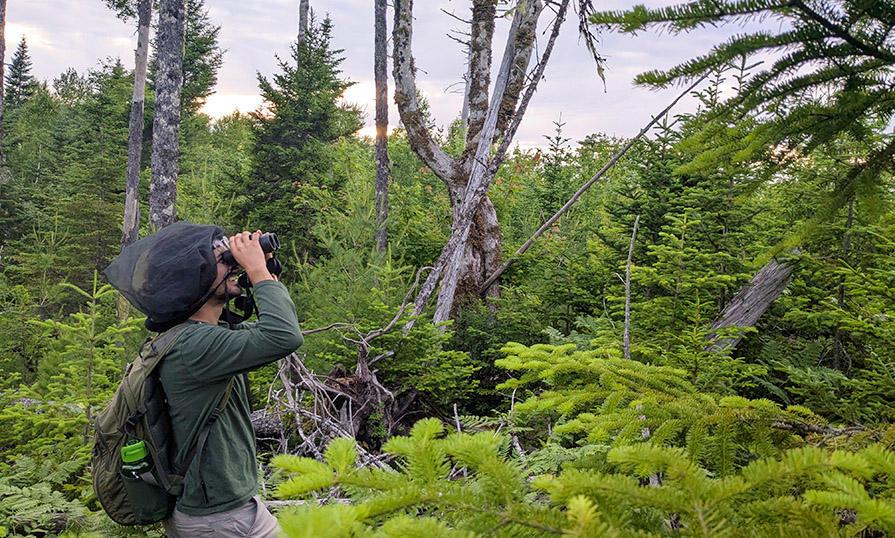Learning by doing: NRET students take on forest conservation challenges

Date: Aug. 05, 2025
Hands on learning with lasting impact through work placements
In the forests and wetlands of southwest Nova Scotia, conservation is an ongoing, day-to-day effort. Thanks to support from the Family Forest Network, NSCC’s Centre of Forest Innovation helped fund 11 Work Integrated Learning (WIL) placements across eight partner organizations. For students in the Natural Resources and Environmental Technology (NRET) program, these placements are stepping stones into careers rooted in stewardship and ecological protection.
From animal care to conservation science
For Lisa Faulkner, a former vet technician and wildlife rehabilitator, the decision to pursue environmental conservation came from a deep love of the outdoors and a desire to make a broader impact. Enrolling in NSCC’s NRET program gave her the technical foundation and field experience she needed to change course.
“I think NSCC has done a great job in preparing me with the skills that I needed for working in the field, as well as creating access to the partner networking that is really important to be successful in this job,” says Lisa.
This summer, Lisa worked with the Mersey Tobeatic Research Institute (MTRI), conducting field surveys for species at risk. Her role involved monitoring endangered Eastern Ribbonsnakes, species that rely on forested habitat for overwintering, as well as tracking turtles, bats and other rare wildlife across the region.
Fieldwork that makes a difference
“My work placement at MTRI has definitely helped me grow my resume in the direction that I wanted it to go in: conservation and species at risk work,” she says. “There have been a lot of long, late nights, a lot of bugs, but it’s been totally worth it. I love it! It’s been great just to see some success in the conservation work that we're doing.”
Learning through doing and connecting

For Nick DeForest, a first-year NRET student returning to school after years in landscaping, the summer role at MTRI provided the kind of immersive, hands-on learning that deepens classroom theory.
“I've been trying to get little pieces of every single thing that's happening within MTRI to really get a fuller scope of anything in the environmental field,” Nick says. “I’ve especially appreciated the networking; I've got to meet a good amount of people working in the field already.”
Nick also supported bird surveys designed to inform future forest stewardship practices. “I'm much more of a tactile learner. The plethora of birds I've got to see so far has been amazing; there have been so many wonderful experiences that I've done here that have made it all worthwhile for me.”
Partners in field learning
As one of eleven members of the Family Forest Network, the Mersey Tobeatic Research Institute has welcomed multiple NSCC students into its field programs over the years. The collaboration has brought mutual benefit.
“We’ve found they have a very good work ethic, adaptability and frankly a lot of heart,” says Crystal Doggett, Co-director at MTRI. “The support from NSCC is an asset as well. To have NSCC students attend our conferences, have the opportunity to present to students and have students do class projects based on MTRI work has created a special relationship that benefits all involved. The skills of the NRET students are particularly suitable for our fieldwork related to ecological forestry, old-growth forests and at-risk species research.”
Preparing the next generation of forest stewards
As conservation challenges grow more complex, programs like NRET, backed by real-world field experience and strong partnerships, are helping prepare the next generation of ecological stewards. Through placements like these, students are gaining field skills, confidence, clarity and a deeper sense of what it means to care for Nova Scotia’s natural legacy.
